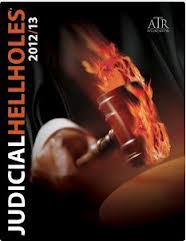 Another social media case. This time, instead of the keys to a Facebook account being sought, it is a YouTube video that had been pulled down or hidden. And the video subject matter involves drinking, smoking, shooting a gun and cursing, among other things.
Another social media case. This time, instead of the keys to a Facebook account being sought, it is a YouTube video that had been pulled down or hidden. And the video subject matter involves drinking, smoking, shooting a gun and cursing, among other things.
Is this stuff relevant to the lawsuit such that it need be disclosed?
The case of Reid v. Soults starts with tragedy, as 26-year-old Robert Reid falls off an ATV and suffers a traumatic head injury. Off he goes to see the defendant doctors for treatment.
A medical malpractice suit ensues as the young man dies, premised on a delay in treatment for cerebral edema. As with every other medical malpractice case, obviously no claim is made for the injuries suffered before the patient came into contact with the defendants.
In this case, there is a YouTube video called “Rob Reid Raw and Uncut” that was placed online by non-party Thomas Reid, Jr. (brother of Rob). It showed, according to the defendants, “the decedent drinking, smoking, and using guns,” all of which preceded the accident and alleged malpractice. That video was then taken down or made private.
Coming as a shock to absolutely no one, the defendants wanted an authorization for the YouTube account of the non-party, bringing up an interesting issue as to whether such discovery should be entertained.
The plaintiff, of course, countered that the only reason the defendants wanted the video was so that they could besmirch the character of the decedent in the hopes that the jury wouldn’t like him, and therefore ignore issues of malpractice.
In other words, the plaintiff wants the trial to focus on the doctors. The defendants want the trial to focus on the conduct of the decedent before any accident even occurred, and are looking for any hook to make it relevant.
The issue for the court: Could the requested discovery be relevant to the issues of pecuniary loss and life expectancy, which are at issue in a wrongful death case, such that it would then make it discoverable?
Back in 2011 when a lower court told a different plaintiff to cough up all Facebook data for a similar request for social media records, the appellate division (First Department) stopped the practice dead in its tracks and forced the lower court to do an in camera review.
The problem here for the courts is that, with the explosive creation of new potential evidence due to a variety of social media, the courts could be swamped by such requests, and each request could contain mountains of postings, private messages, photographs and videos.
Last year, Judge Joseph Maltese, sitting as a trial judge in Staten Island, warned of the problem of defense fishing expeditions through the lives of plaintiffs and the tsunami of data:
As a matter of judicial policy, such a fishing expedition is not a sufficient basis to open the flood gates of meandering thoughts or silly postings to be used to impeach a party in a simple assault or negligence action without any good cause to believe that any incriminating statement was ever made and publicized in the social media. These are not matters of national security or part of a criminal investigation. This is a civil tort matter of a minor assault that should have a good faith basis other than supposition, hope or speculation that some comment was made that may be relevant to the case at hand.
The appellate court in the Reid matter told the lower court to review the video. And Judge Joan Lefkowitz, who sees many of the medical malpractice cases in Westchester, did just that. And she found it badly wanting in the relevancy department, giving the defendants a big fat no in response to their attempts.
A final note: While the standard here is that the party making the request must show a “factual predicate” to get access to the records, the exceptionally burdensome task that will befall the courts in doing the reviews of what could be, in some cases, mountains of records, means that if such requests are not well-documented, the request should be doomed.
The vast majority of such requests I have sheen so far are simply fishing expeditions. Courts are not going to place themselves in the position of looking for a minnow in an ocean on behalf of the defendants.
Note: On my request, plaintiff’s counsel Anthony Pirrotti, Jr. — a frequent lecturer to other trial lawyers — provided me with some of the background, via one of the briefs.

